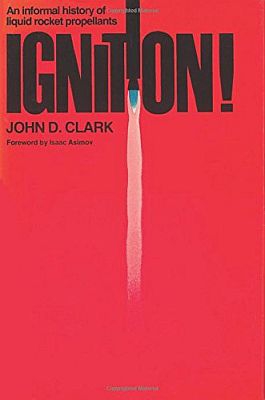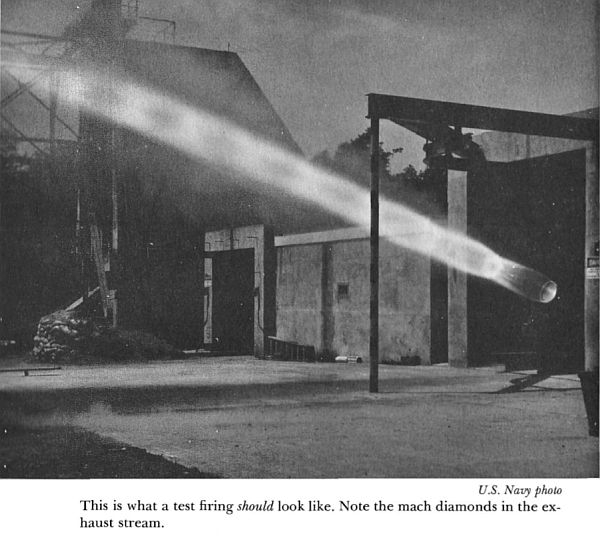
Review
"Read this book. You’ll find plenty about John and all the other sky-high crackpots who were in the field with him and you may even get (as I did) a glimpse of the heroic excitement that seemed to make it reasonable to cuddle with death every waking moment—to say nothing of learning a heck of a lot about the way in which the business of science is really conducted."
(Issac Asimov)
Product details
- Hardcover: 214 pages
- Publisher: Rutgers University Press (1972)
- Language: English
- ISBN-10: 0813507251
- ISBN-13: 978-0813507255
From a detailed review by user Coyote at Amazon.com:
A Fantastic Review of the History of Rocket Propellant Chemistry December 17, 2018 Format: Kindle Edition Verified Purchase
This book is just delightful!
It covers the history of rocket propellant research from the late 1800s to about 1980 through the eyes of a propellant chemist. The writing is engaging and humorous.
For those interested in the specifics of propellant chemistry, this book is a fantastic starter. Note that this is a history, not a lab manual. The author spends plenty of time talking about why a particular chemical works and why others don't. Chemical handling problems are discussed along with spine-tingling accounts of accidents. There were a few fairly tedious sections where the specifics of a particular family of propellants were explored but these sections are easily skipped without serious impact on the following text.
Readers are strongly encouraged not to try this at home because everything in this book is designed to go bang in a very big way. There is more than enough information provided in this book to get started with making liquid propellants. However, even experienced chemists accustomed to working in this field are hurt or killed. DO NOT TRY AT HOME. "
Amazon has other good reviews at their Kindle eBook edition page.
The Science Madness Library has a free PDF file here.
Some images - Click on Images for Larger versions - from page 2:
 ...and the same site, after a less successful test, on page 3:
...and the same site, after a less successful test, on page 3:

Incidentally, we were talking about this book on a QOTO mastodon thread here, and the question of "What is a Mach Diamond?" came up, naturally. (seen in the caption on the first photo above)
Wikipedia has an excellent page for the curious minds.
Enjoy, the author has a good sense of humour besides extensive scientific and historical knowledge on the subject.

Comments
No comments yet. Be the first to react!